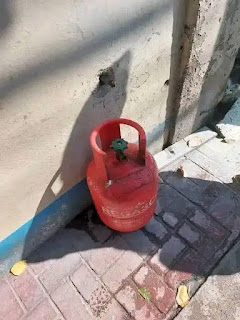1. Leakage: One of the most concerning reasons for noise coming from a gas cylinder is a potential leak. If there's a leak in the cylinder or the hose pipe connection, you might hear hissing or whistling sounds as the gas escapes. This is a serious safety hazard and should be addressed immediately by turning off the gas supply and contacting your gasman to inspect and repair the leak.
2. Pressure Release: Sometimes, gas cylinders can make noise as a result of pressure being released. This can occur when the pressure inside the cylinder builds up due to factors like exposure to heat or overfilling. The noise might sound like a faint hiss or popping sound. While this isn't necessarily dangerous, it's important to monitor the cylinder and ensure it's not being subjected to excessive pressure.
3. Condensation: If you hear a bubbling or gurgling noise coming from your gas cylinder, it could be due to condensation forming inside the cylinder. This typically happens when the cylinder is stored in a humid environment or if there's a sudden temperature change. While condensation itself isn't harmful, it's a good idea to inspect the cylinder for any signs of corrosion or rust that could indicate moisture damage.
4. Mechanical Issues: In some cases, the noise coming from a gas cylinder could be due to mechanical issues with the cylinder valve or regulator. This might include rattling, grinding, or squeaking sounds when the valve is opened or closed. Mechanical issues should be addressed promptly by a qualified technician to ensure the safe operation of the cylinder.
READ MORE: Why Does My Propane Tank Makes Strange Noise At Home?
Finally, consider any external factors that could be causing noise around the gas cylinder. For example, nearby machinery, appliances, or even strong winds could create vibrations or disturbances that result in noise. If the noise is intermittent and seems to be related to external factors, there's likely no cause for concern. However, if you're unsure about the source of the noise or how to address it, don't hesitate to seek assistance from a qualified gas technician. Remember, safety always comes first when dealing with gas-related issues.


